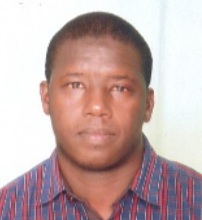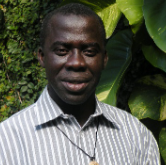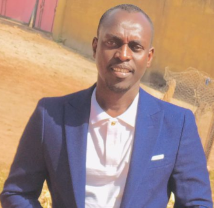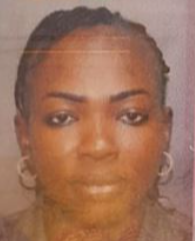Main Menu
Participatory mapping has emerged in recent years as an innovative and inclusive approach to sustainable natural resource management. Within the specific context of mangrove ecosystems, it actively engages local communities, researchers, policymakers, and resource users in the collection, analysis, and interpretation of spatial data. This participatory approach not only enhances stakeholders’ ownership of environmental issues but also promotes more transparent and collaborative governance of these territories.
Despite its many strengths, participatory mapping also presents methodological, technical, and social challenges. What are the limitations of this approach? Under what conditions can it meaningfully improve mangrove monitoring and conservation? What key lessons can be drawn from its application in different contexts?
This panel will bring together diverse voices to explore the advantages, challenges, and critical insights associated with using participatory mapping in mangrove ecosystem monitoring. The discussion aims to foster a constructive and critical reflection that will help strengthen the effectiveness and sustainability of these collaborative efforts.

Yakhya Guèye holds a Master’s degree in Natural Sciences, with a solid scientific and naturalist foundation. He earned an advanced degree “Diplôme d’Étude Approfondie (DEA)” in Applied Physics for Biological and Medical Sciences from FST/UCAD, followed by a specialized Master’s degree in Water and Environmental Engineering, focusing on Integrated Water Resources Management (IWRM) at the 2IE Foundation (formerly EIER).
He has extensive experience coordinating and managing conservation and development projects aimed at the sustainable use of wetlands, adopting ecosystem-based and IWRM approaches. Yakhya is passionate about Geographic Information Systems (GIS) and the economic valuation of ecosystem goods and services.
Currently, he serves as Coordinator of the Natur’ELLES project at IUCN-PACO. He previously worked as an IWRM expert at the Ecological Monitoring Centre (CSE) in Dakar, contributing to feasibility studies for water management schemes along the Senegal River. Since 2013, he has been a Project Manager and Team Leader at Wetlands International West Africa Coastal and Gulf of Guinea (WIACO), focusing on mangrove conservation. Between 2020 and 2024, he coordinated WIACO’s field operations in the Saloum Delta and Casamance regions and played a key role in establishing the Global Mangrove Watch.

Doudou DIEDHIOU, originally from Foundiougne, is an environmentalist deeply committed to nature conservation and sustainable development. He holds a Bachelor’s degree in Geography from Gaston Berger University in Saint-Louis, where he specialized in ecosystems and the environment. His research focused on the vulnerability of the Saloum Islands to climate change, culminating in a Master’s degree (Level 2) earned in 2016. He also completed training in environmental policy and project evaluation at Senghor University.
Starting as a volunteer and later becoming the coordinator for the southern Saloum zone at the NEBEDAY Association, Doudou has gained extensive experience implementing projects in the Saloum Delta. An advocate for participatory approaches to strengthen community resilience, he has coordinated a variety of initiatives ranging from environmental education to the promotion of local products through programs such as Tefess, RESCO, and Niowan Saloum.
Currently, he serves as the Head of the Southern Saloum Zone and Environment Focal Point for the Natur’ELLES project, supported by SOCODEVI and the Government of Canada.

Salatou Sambou is a fisherman from Casamance. He is the former President of the Mangagoulack Rural Community Fishermen’s Association (APCRM) and the founder, alongside his entire community, of APAC Kawawana. This association was the first in Senegal to receive official recognition from the regional authorities of the Senegalese government in 2010. He currently serves as the Coordinator of the APAC Consortium for West Africa.
Salatou is frequently invited to international conferences and meetings to share his experience. He also participates as a trainer in workshops focused on co-management governance of marine-coastal conservation areas in West Africa. Since November 2008, he has coordinated the APAC Consortium, overseeing the marine-coastal zone of West Africa, from Mauritania to Guinea. He has been deeply committed to natural resource conservation since 2006.

Manlafy Kanté hails from the village of Bona, in the Bounkiling department. He completed his primary education at the Bona elementary school, obtaining his CFEE certificate, before continuing his studies at the Bounkiling and Marsassoum CEMs, where he earned his middle school degree. He then attended Ahoune Sané High School in Bignona, graduating with a Baccalaureate in the L2 series.
He went on to study Geography at UCAD, developing a strong passion for geographic sciences, driven by a constant curiosity about the world and its many components. Manlafy specialized in Physical Geography, focusing particularly on Hydrology, in which he earned a Master’s degree. He later embarked on a doctoral thesis within the Graduate School of Water, Water Quality, and Water Uses (EDEQUE), although he did not complete it.
A great enthusiast of cartography, he has worked to develop his skills to better understand environmental issues. In this field, he notably created several maps locating Indigenous and Community Conserved Areas (ICCAs) in partnership with the NGO KABEKA, actively contributing to environmental preservation and protection initiatives.

Lieutenant Fatou Mané is the current Head of the Geographic Information System at the Directorate of Community Marine Protected Areas (DAMCP). She holds a degree in Land Use Planning, Environment, and Urban Management from ESEA (formerly ENEA). Additionally, she has university-level training in Biology, Chemistry, and Geosciences from FST/UCAD.
Her passion for biodiversity conservation and community development support began well before she wrote her thesis titled: “The Impact of Mangrove Ecosystem Restoration on the Physical Environment and Household Living Standards: The Case of the Commune of Niamone.”
In her current role, she is at the forefront of establishing new Marine Protected Areas (MPAs), with responsibilities including participatory mapping of new ecologically important sites, developing management plans for these sites—covering zoning and defining management rules to enhance the conservation of marine and coastal biodiversity.
She also serves as the focal point for DAMCP on all carbon/mangrove projects, ensuring coordination of field activities.